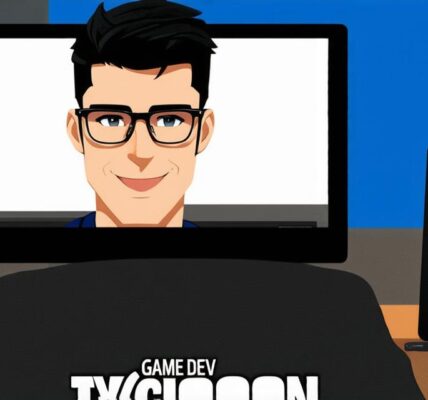Introduction
The world of video games is constantly evolving, with new innovations emerging all the time. One aspect that has remained consistent, however, is the importance of education in shaping the success of video game producers. These individuals play a crucial role in bringing video games to life, working closely with developers and designers to ensure that their visions are realized. In this article, we will explore what kind of education video game producers typically have and how it has influenced their career paths.
Understanding Video Game Producers
Before delving into the educational backgrounds of video game producers, it’s important to understand what they do. At its core, being a video game producer involves managing the development process for a video game. This includes everything from overseeing the team to coordinating with external partners, and making critical decisions about the direction of the project.
To be an effective video game producer, individuals need to have a combination of technical skills and interpersonal abilities. They need to be familiar with game development tools and techniques, as well as have strong leadership and communication skills. Additionally, they need to have a deep understanding of their target audience and what makes a game successful in the marketplace.
Educational Backgrounds of Video Game Producers
While there is no set educational path for video game producers, many of them have degrees in related fields such as computer science, engineering, or design. These disciplines provide a strong foundation in the technical aspects of game development, including programming, art, and sound design.
For example, many successful video game producers started their careers in computer science or engineering programs. They learned about programming languages like C++ and Python, as well as data structures and algorithms that are essential for creating efficient and optimized games. Additionally, they gained experience working on projects with teams of developers and designers, which is crucial for managing a production team.
Another common educational background for video game producers is in the arts. Many have degrees in fields like animation or graphic design, which provide them with a deep understanding of the visual aspects of games. This includes everything from character modeling to texturing and lighting, as well as knowledge of color theory and composition.
In addition to traditional degree programs, many video game producers also have experience working in other areas of the gaming industry. For example, some may have worked as testers or QA professionals, which gives them a deep understanding of the testing process and how to identify and fix bugs in games. Others may have worked as artists or designers, which provides them with valuable experience in creating assets for games.
Career Paths of Video Game Producers
Once video game producers have completed their education, they typically begin their careers working on smaller projects or internships. As they gain experience and build a reputation, they may move up to more senior roles within the industry.
Many successful video game producers started out working as developers or designers before transitioning into production roles. For example, Shigeru Miyamoto, the creator of Super Mario Bros., began his career in game development before moving on to become a producer for Nintendo. Similarly, Hideo Kojima, the creator of the Metal Gear Solid series, began his career as a programmer before transitioning into production roles.

As video game producers progress in their careers, they may take on increasingly complex projects with larger budgets and teams. They may also specialize in specific areas of game development, such as mobile games or esports. In addition to working directly on games, many producers also work on other aspects of the gaming industry, such as creating marketing campaigns or overseeing the distribution of games.
FAQs
1. What kind of education do video game producers typically have?
While there is no set educational path for video game producers, many of them have degrees in related fields such as computer science, engineering, or design. These disciplines provide a strong foundation in the technical aspects of game development, including programming, art, and sound design.
2. Do video game producers need to have experience in game development before transitioning into production roles?
While it’s not strictly necessary for video game producers to have experience in game development before transitioning into production roles, many successful producers began their careers in development before moving on to production. This experience can be valuable in helping producers understand the technical aspects of game development and work effectively with a team of developers and designers.
3. What are some common career paths for video game producers?
Video game producers may begin their careers working on smaller projects or internships before transitioning into more senior roles within the industry. They may also specialize in specific areas of game development, such as mobile games or esports, or work on other aspects of the gaming industry, such as creating marketing campaigns or overseeing the distribution of games.
4. How can video game producers ensure that their projects are successful in the marketplace?
To ensure that their projects are successful in the marketplace, video game producers need to have a deep understanding of their target audience and what makes a game successful. They also need to be skilled at managing budgets and timelines, as well as collaborating with other teams of developers and designers. Finally, they need to be willing to adapt and innovate based on feedback from players and market trends.
Conclusion
In conclusion, video game producers play a crucial role in shaping the success of video games. Their educational backgrounds typically include degrees in related fields such as computer science, engineering, or design, which provide them with a strong foundation in the technical aspects of game development. As they progress in their careers, they may take on increasingly complex projects with larger budgets and teams. By having a deep understanding of their target audience and what makes a game successful




